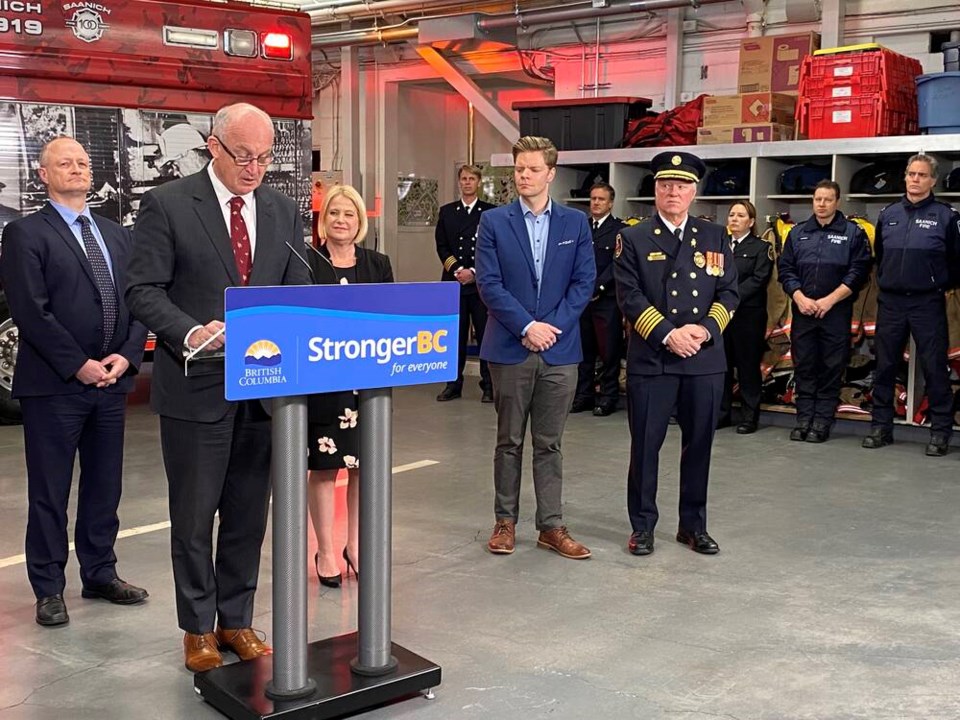Someone who needs emergency assistance but can’t speak or make a noise will be able to text from a mobile device with new 911 technology that will be in place by 2025, Public Safety Minister Mike Farnworth said Wednesday.
Farnworth, speaking at the Saanich Fire Department, said the province is investing $150 million as it works with local governments to upgrade B.C.’s aging 911 emergency communications system.
Upgrades to Canada-wide “Next Generation 911” will allow people to contact 911 confidentially through real-time text, for example. Operators will also be able to locate victims through GIS mapping if they are unable to provide their address.
The upgrades will also aid people with disabilities, who will be able to use different text media to interact with operators.
“When people experience a life-threatening emergency, they need to know they can count on an accessible and reliable 911 system,” said Farnworth.
The Canadian Radio-television and Telecommunications Commission has mandated the implementation of Next Generation 911 and decommissioning of current 911 networks by March 4, 2025.
Oliver Grüter-Andrew, president and CEO for E-Comm 911, said the cost of the federally mandated improvements to 911 is high and would be difficult for local governments to fund alone. The 911 service receives about two million calls annually in B.C.
Local governments are responsible for their own 911 services.
The province’s $150-million investment — which still needs approval by the legislative assembly — will help offset local governments’ costs for transitioning to the Next Generation 911 technology.
It includes $90 million to be provided to E-Comm for technological upgrades and $60 million to the Union of B.C. Municipalities to help with costs such as staffing and training.
Citizens’ Services Minister Lisa Beare said improving emergency communications will enhance safety for those living in and travelling through remote parts of the province.
E-Comm, which handles the large majority of B.C.’s 911 call volume — in 25 of 27 regional districts in B.C. — is leading the implementation in most B.C. municipalities.
The B.C. Ambulance Service has been plagued by long response times over the last couple of years.
In December, Troy Clifford, union president of Ambulance Paramedics of B.C., called the situation dire and said wait times for ambulances were rising every day across the province.
Clifford cited a lack of paramedics to cover the shifts available.
The announcement Wednesday will not directly affect the operational side of the service, the province said, but the advanced technology will facilitate a more co-ordinated emergency response.


